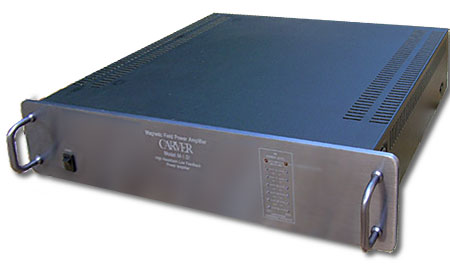It's not like people are kept from posting their subjective...errrr...investigations here anyway. They just get challenged on them. At least we don't ghetto-ize them to a separate area designated as theirs and restrict them from saying anything everywhere else like Headfi does to us objectivist types.
It would not be the same thing. While segregating 'objectivist types' is anti-science, Headfi doesn't present itself as a science-focused site in the first place. You don't go there expecting that subjective impression posts will be discouraged (as you would at Hydrogen Audio). It's also focused on headphones, which like loudspeakers do sound reasonably different.
Discouraging subjective poetics about 'amp sound' here would be in-line with this site's ambit: a place for learning and discussing audio science. It would be anti-non-science. What's wrong with that?
(Examples of the power of cognitive bias provided by such claims could be considered within that ambit, as a part of psychoacoustics...but how many samples of the phenomenon do we really need?)


